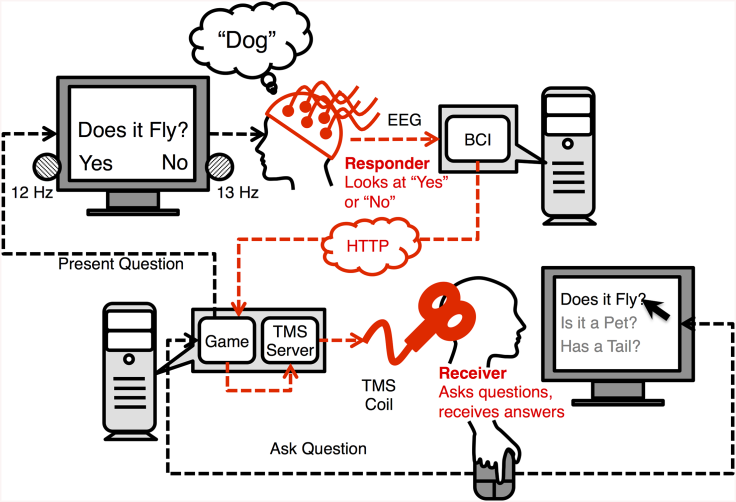Brain-To-Brain Communication And Mind Reading Is Now A Possibility

Two isolated game participants can now play a game over the internet by reading each other's mind, without having the need to see or speak to each other. Yes, that seems to be a possibility after what researchers at the University of Washington claim to have developed.
Researchers Andrea Stocco and Chantel Prat claimed to have designed a brain-to-brain interface that lets its users communicate remotely over the internet, without uttering even a single word. The researchers say that they have found a way to take information from one's brain and put it into another person's brain without much translation.
During the study, Stocco and Prat translated the thoughts of one individual into flashes of light. The pair of participants was separated into two darkened rooms. One was designated as the “respondent,” and the other was designated as the “inquirer,” the one who asked the questions.
The respondent was connected to an electroencephalography machine that continually kept a record of the individual's brain activities. The inquirer was made to sit in front of a magnetic coil that had the potential to stimulate the visual cortex of the participant and make him see the flashes of light called “phosphene.”
The respondent was shown a series of common objects, of which he selected one. The inquirer, who was placed nearly a mile apart from the respondent, was told to ask a series of simple “yes” or “no” questions from his counterpart to determine the object that the other person is looking at.
The respondent answered the question by simply focusing on the one of two “yes” or “no” flashing LED lights connected to a computer monitor. The respondent's answer traveled back to the inquirer in the form of an electrical signal, which activated the magnetic coil. The coil stimulated the cortex of the inquirer, wherein a “yes” prompted a strong response for its activation, while a “non” did not.
The researchers are now planning to study the possibility of “brain tutoring.” The team wish to see if it is possible to transfer signals from healthy brains to the one developmentally impaired. The complete details of the “mental 20 questions” study have been published in the journal PLOS ONE.
© Copyright IBTimes 2024. All rights reserved.





















